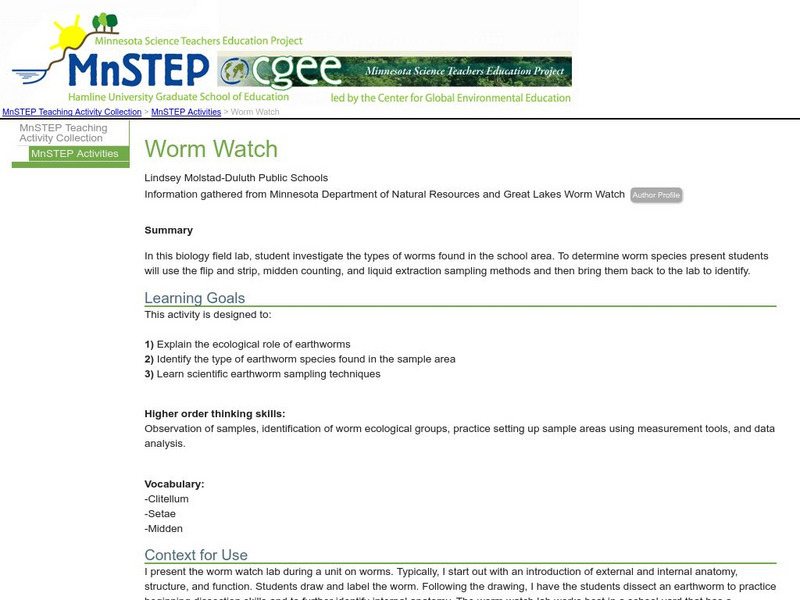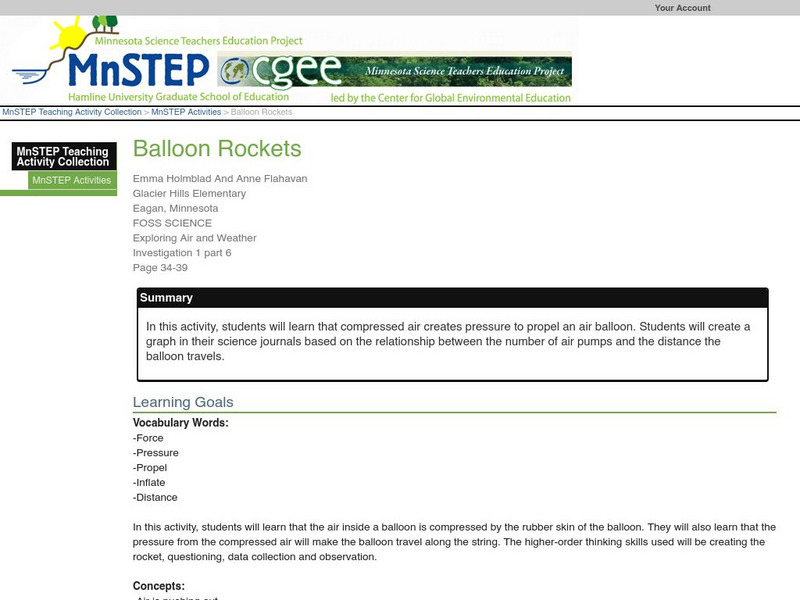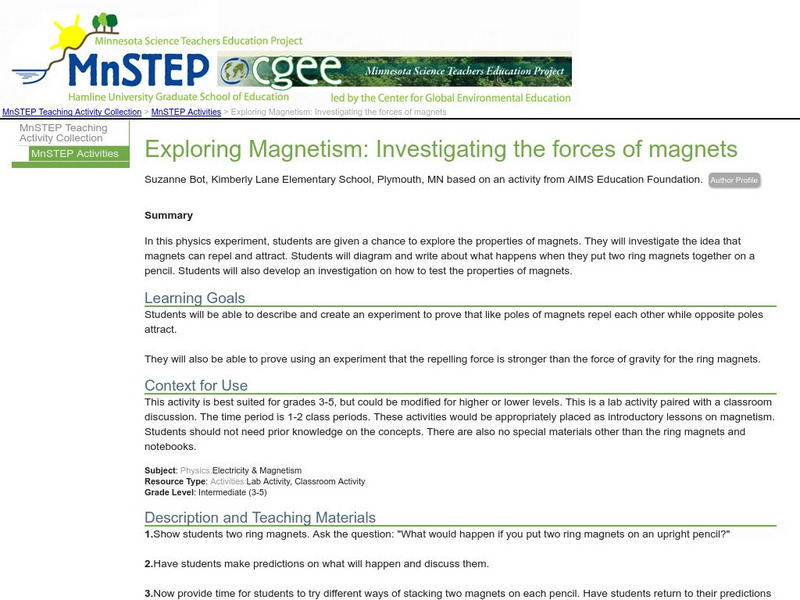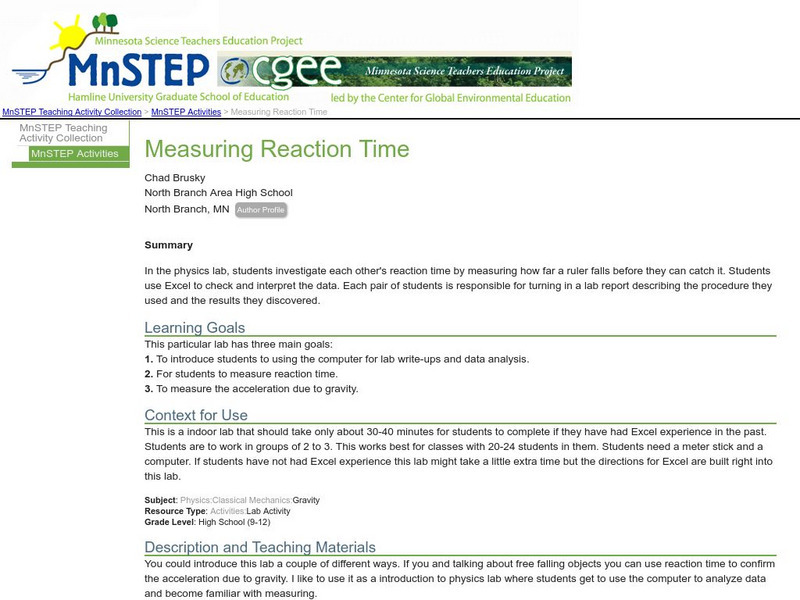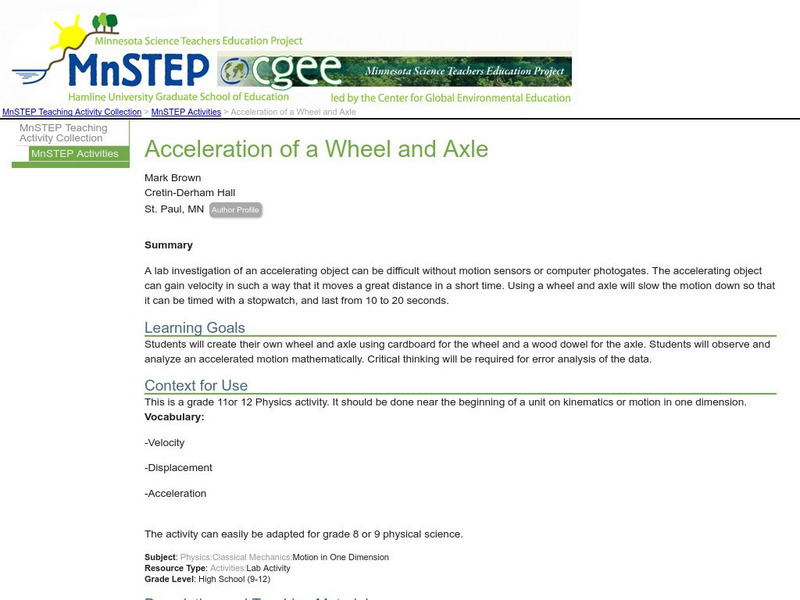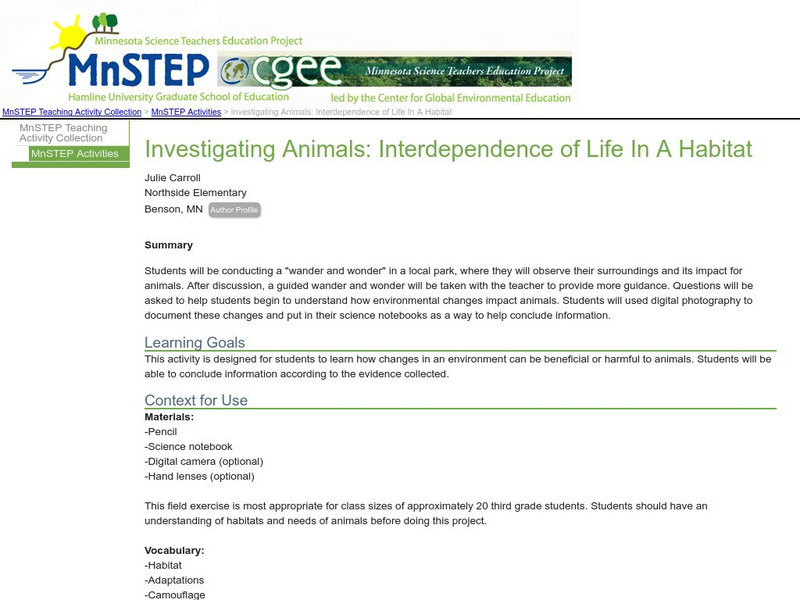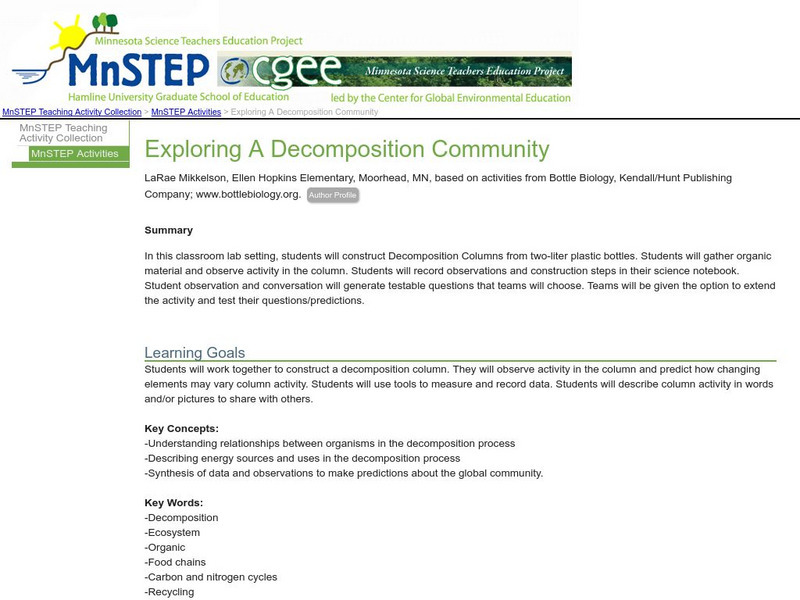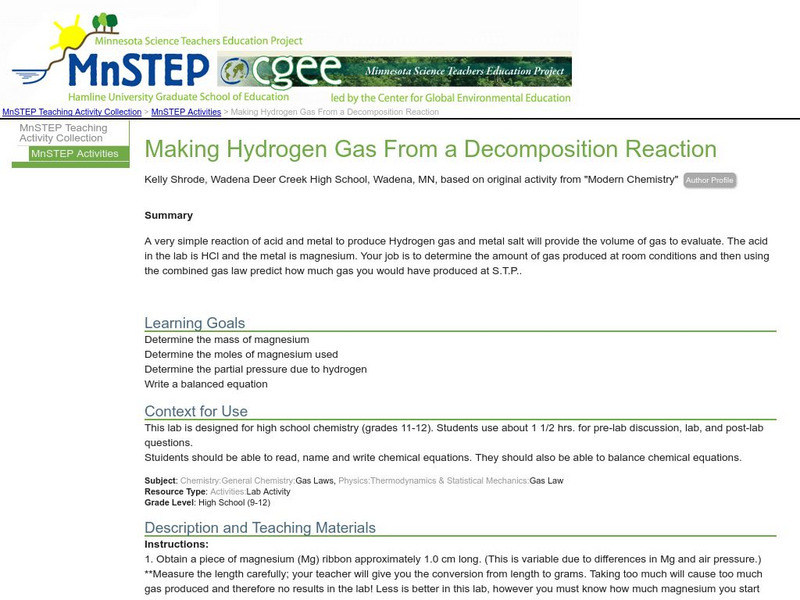Science Education Resource Center at Carleton College
Serc: Air She's So Heavy!
During this inquiry activity students will draw on their knowledge of balancing and using an equal arm balance to make discoveries about air!
Science Education Resource Center at Carleton College
Serc: Geological Forces Changing the Landscape at Minnehaha Falls
Young scholars observe and discuss what forces have changed Minnehaha Falls and shaped the geological features surrounding it.
Science Education Resource Center at Carleton College
Serc: Make a Model Fossil
This activity will show young scholars two different ways fossils can be made. They will form and discuss the differences between a "mold" and a "cast" model fossil(s).
Science Education Resource Center at Carleton College
Serc: Animal and Plant Cell Models and Cell Tour Given to Life Science Students
A biology class is divided into two groups: one an animal cell, and the other one, a plant cell. They are given a list of cell organelles to research and construct in their 9 M X 9 M model. Students must organize and assign duties,...
Science Education Resource Center at Carleton College
Serc: Mn Step: Worm Watch
For this field investigation, learners use sampling techniques to identify the types of earthworms found in the schoolyard. Data will be combined for the whole class to get a snapshot of the earthworm population, species, and ecological...
Science Education Resource Center at Carleton College
Serc: Balloon Rockets
For this activity, students will learn that compressed air creates pressure to propel an air balloon. Students will create a graph in their science journals based on the relationship between the number of air pumps and the distance the...
Science Education Resource Center at Carleton College
Serc: Exploring Magnetism: Investigating the Forces of Magnets
Learners describe and create an experiment to prove that like poles of magnets repel each other while opposite poles attract. Using the experiment, they use the data to support the claim that the repelling force is stronger than the...
Science Education Resource Center at Carleton College
Serc: Effects of Air Temperature on Seed Germination
Students investigate the effects of air temperature on seed germination by preparing seeds for germination and placing them in locations of varying temperatures. Students will monitor and record data concerning the temperatures and...
Science Education Resource Center at Carleton College
Serc: Allelopathy
In this biology lab investigating allelopathy, students design and carry out an experiment to test for the presence of allelochemicals released by plant species found locally. Students will be grouped into teams to design and carry out...
Science Education Resource Center at Carleton College
Serc: Designing Fast and Slow Airplanes and Measuring Velocity
In this activity, students design their own airplanes and fly them. The challenge is to create a fast plane and a slow plane and compare the speed to the design.
Science Education Resource Center at Carleton College
Serc: Maximizing Displacement: Mass, Volume and Density
This problem-solving activity demonstrates the concepts of mass, volume, and density and how they relate to displacement.
Science Education Resource Center at Carleton College
Serc: Design, Build and Test Hot Air Balloon
Students design, build, and then test hot air balloon designs. The activity concludes with flight testing the balloons and then a review of the design features of all balloons for the most advantageous design features.
Science Education Resource Center at Carleton College
Serc: Measuring Reaction Time
Students investigate each other's reaction time by measuring how far a ruler falls before they can catch it. They will interpret the data and turn in a lab report describing the procedure they used and the results they discovered.
Science Education Resource Center at Carleton College
Serc: Acceleration of a Wheel and Axle
A lab investigation of an accelerating object can be difficult without motion sensors or computer photogates. The accelerating object can gain velocity in such a way that it moves a great distance in a short time.
Science Education Resource Center at Carleton College
Serc: Natural Stream Tables
This multi-part lesson serves as an introduction to stream tables. Students will develop a stream table outside using items they find in the park that represent what they think will and will not get washed into the St Louis River.
Science Education Resource Center at Carleton College
Serc: Calculating the Speed of Sound
In this physical science lab, young scholars will calculate the speed of sound. They will observe that the speed of sound is constant, regardless of wavelength or frequency, and see the inverse relationship between wavelength and frequency.
Science Education Resource Center at Carleton College
Serc: Construction of a Complex Machine Through Classroom Collaboration
Students take a simple task and make it much more complicated using a cardboard box. Each group must use a minimum of six simple machines utilizing at least four types of simple machines. The goal is to keep the initial impulse moving...
Science Education Resource Center at Carleton College
Serc: Using Macroscale Measurements to Determine Microscale Quantities
In this guided inquiry activity, students will see how we can obtain information about the atomic world by making macro-scale calculations. Students will also use dimensional analysis to manipulate their measurements to achieve the...
Science Education Resource Center at Carleton College
Serc: Investigating Animals: Interdependence of Life in a Habitat
For this activity, students will learn how changes in nature can be beneficial or harmful to animals. At the end, students will be able to conclude information according to the evidence collected.
Science Education Resource Center at Carleton College
Serc: Exploring a Decomposition Community
A lab where students construct Decomposition Columns from two-liter plastic bottles, and then observe them over a period of time.
Science Education Resource Center at Carleton College
Serc: Determining Bird Populations Through Counting
Students participate in a bird count to determine the number of birds sighted in four different sites. Students draw inferences from recorded data on a bar graph in regard to the number of species in the area and relative population size.
Science Education Resource Center at Carleton College
Serc: Marble Stop
In this two-part lesson, students will discover that no matter what the shape of the track, the marble will rise to the same vertical height. They will begin to understand the concepts of gravity, motion, and force.
Science Education Resource Center at Carleton College
Serc: Mn Step: Replicating Colors: Using Tints, Shades and Primary Colors
For this activity, young scholars are asked to mix paints that match a muted color they choose, in order to create a formula for the color. Other students then try to recreate their color.
Science Education Resource Center at Carleton College
Serc: Making Hydrogen Gas From a Decomposition Reaction
A very simple reaction of acid (HCl) and metal (magnesium) to produce Hydrogen gas and metal salt will provide the volume of gas to evaluate. Students will determine the amount of gas produced at room conditions and then using the...






